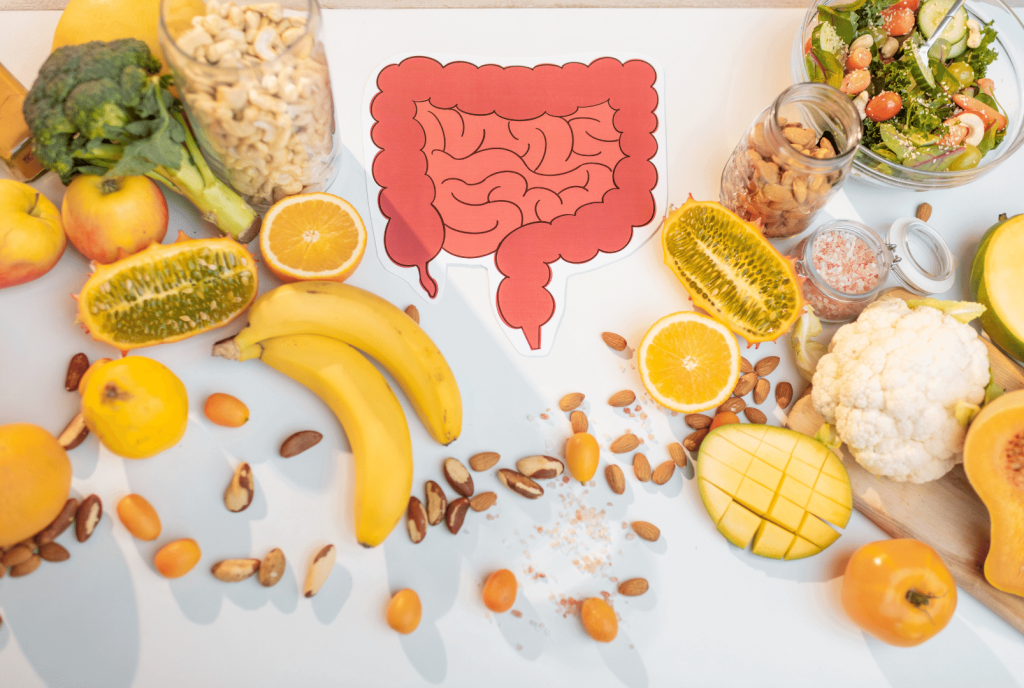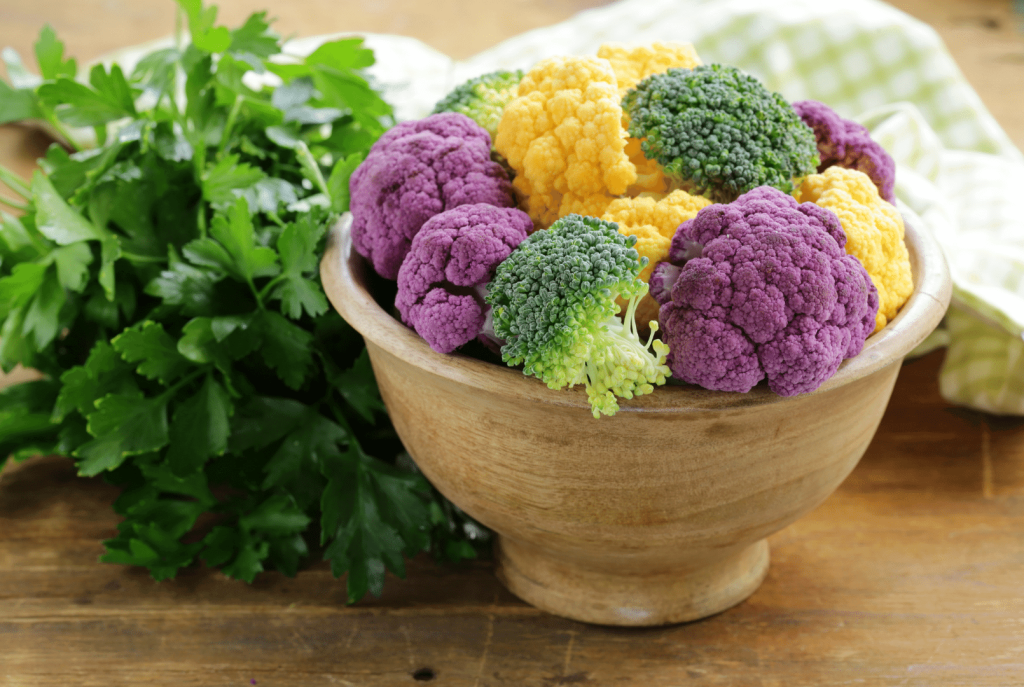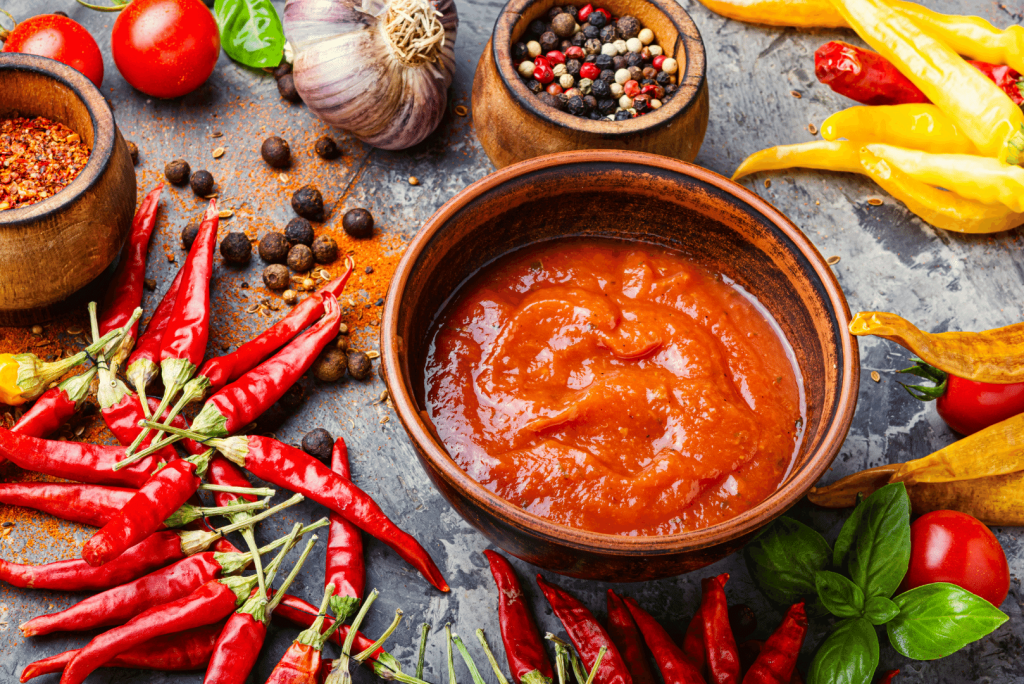
What Are Antinutrients And Gut Irritants In Vegetables?


What Are Antinutrients And Gut Irritants In Vegetables?
What are antinutrients and gut irritants?
These harmful effects can differ from person to person, however. One man’s superfood can be another man’s poison. Many people who do well on a plant-based diet have genetics and epigenetics that allow them to better tolerate or derive benefits from these substances. Some “nutrition experts” are trying to promote that “lectins” are “dangerous for everyone.” This is not accurate. There are many ways to mitigate the downside.
Most of the population tolerates these substances in food doses and feels better eating more plants. At the same time, the minority who feel better by avoiding grains and beans may have the genetics, epigenetics, and microbiome that make these substances dangerous for them.
If you’re susceptible, these antinutrients but irritants can cause symptoms and health issues. Some people may think they have vegetable intolerance as they feel gut discomfort soon after eating it. The best way to know is to temporarily remove them from your diet for a few weeks and bring them back to see how you feel.

You should be aware of the eight antinutrients and gut irritants found in vegetables and plant-based foods.
1. Phytates
Phytates are found in plant seeds (grains, legumes, and nuts), roots, and tubers. They bind to minerals like iron, zinc, and magnesium, impairing the absorption of these minerals. You can reduce phytates by soaking, sprouting, and fermenting your grains and beans.
2. Tannins
Tannins are water-soluble polyphenols that make tea, coffee, and vegetables bitter. Plants make tannins to deter you from eating them.
In animal studies, tannins reduce feed intake, growth rate, feed efficiency, net metabolizable energy, and protein digestibility. They neutralize stomach acid and impair the absorption of zinc, magnesium, copper, and iron, especially non-heme iron. They may also precipitate proteins and inhibit digestive enzymes.
Most human studies that demonstrate the antinutrient effects of tannins are based on tea. So, you should avoid drinking coffee and tea with meals, especially if you are concerned about mineral deficiency.
3. Enzyme Inhibitors
Enzyme inhibitors block the function of enzymes, which are meant to protect seeds against predators. Most of these can be reduced in plants by soaking, sprouting, fermenting, and cooking. Some animal proteins, like casein, can also inhibit digestive enzymes. Generally, the best way to overcome the effects of enzyme inhibitors is to supplement with digestive enzymes to ensure that you have enough.
4. Oxalates
Oxalates can be found in leafy greens, cruciferous vegetables, rhubarb, black peppers, chocolate, tea, nuts, and berries. These can cause kidney stones and discomfort in people with oxalate intolerance. Healthy people, can bind minerals in the gut and prevent absorption. Boiling vegetables and discarding the water may reduce oxalates by 30-87%.
The best way to treat oxalate sensitivity is to avoid foods high in oxalate. If you have severe oxalate sensitivity that causes major discomfort, you may have to be very careful with a plant-based diet.

5. Goitrogens
Goitrogens are substances that prevent healthy thyroid function by blocking iodine entry, interfering with thyroid peroxidase, or interfering with thyroid-stimulating hormone. These are found in unfermented soy products such as tofu, soy milk, edamame, and fresh or fermented cruciferous vegetables. For this reason, you should limit your soy consumption and avoid relying on it for protein.
6. Lectins
Lectins are proteins that help cells recognize each other, which is present in all species. Many plant lectins have protein structures that are difficult to digest, so high-lectin plant foods are common food sensitivities. They also tend to activate your immune system, leading to antibodies, although they only lead to autoimmune diseases in rare cases.
Some lectins are just outright toxic whether you’re sensitive or not. For example, raw white kidney bean lectin causes food poisoning in everyone. Ricin (nefariously used in Breaking Bad), the castor bean lectin, has been used as a toxic weapon.
Legume lectins can be degraded just by cooking or sprouting. In contrast, grain lectins don’t fully impair these processes. If grains, nightshades, squashes, and legumes cause a poor human inflammatory response.
If you are sensitive to lectins or have the genes for lectin sensitivity, doing a plant-based diet may be extra challenging. However, some people may be able to eat plant-based despite lectin sensitivity by maximizing protein digestion with VegZymes and MassZymes and ensuring that their lectin-containing foods are cooked properly.
7. Glycoalkaloids And Saponins
Glycoalkaloids are nitrogen-containing toxins found in nightshade plants. Plants in this family include:
- Tomatoes
- Tomatillos
- Potatoes
- Tobaccos
- Eggplants
- Peppers and their products, such as cayenne, chili pepper, paprika, and dried red peppers
Saponins are soap-like glycoalkaloids that can poke holes in cell membranes, causing the cell to burst. They’re found in legumes, quinoa, onions, garlic, asparagus, oats, spinach, sugarbeet, tea, and yam. Saponins may also inhibit digestive enzymes.

8.FODMAPs
Fermentable oligosaccharides, disaccharides, monosaccharides, and polyols (FODMAPs) are fermentable fibers poorly absorbed in the gut. If you are sensitive to FODMAPs, you likely have an overgrowth of gut bacteria that ferments them in your small intestine. It can cause abdominal discomfort, bloating, and digestive issues.
Although low-FODMAP diets help with many cases of IBS, they can starve good gut bacteria in the long term. Therefore, complete avoidance of FODMAPs remains a very controversial approach. The best strategy is to keep as many foods as possible that don’t cause digestive symptoms. Many people can eventually reintroduce FODMAPs foods after working with a functional medicine practitioner to heal their guts.
What should you do with antinutrients and gut irritants?
The answer is that it’s individual. If you’re very sensitive to these plant-based substances, the best strategy is to avoid them altogether. Some people with vegetable intolerance, such as Dr. Paul Saladino and Mikhaila Peterson, have digestive issues when they eat plants and thrive on carnivore diets. On the other hand, most other people thrive with some plants in their diet. Plants contain valuable fibers, nutrients, and phytochemicals with numerous health benefits.
If you’re unsure whether you could be sensitive to these plant-based substances, a good insurance policy is to take digestive enzymes to ensure optimal digestion.
Concentrated plant-based digestive enzymes like MassZymes and VegZymes are designed to optimize the breakdown of plant-based foods and keep your digestion smooth. VegZymes can help you break down many antinutrients and overcome the enzyme inhibitors in your food.
It also contains full-spectrum plant proteases that can break down lectins better than proteases from animal sources. More importantly, it has alpha-galactosidase and other sugar-digesting enzymes to break down carbohydrates that can cause gas and bloating in legumes. And it contains multiple cellulases, which help break down the plant cell walls.
References
- Chung KT, Wong TY, Wei CI, Huang YW, Lin Y. Tannins and human health: a review. Crit Rev Food Sci Nutr. 1998;38(6):421-464. doi:10.1080/10408699891274273
- Ganji V, Kies CV. Zinc bioavailability and tea consumption: Studies in healthy humans consuming self-selected and laboratory-controlled diets. Plant Foods Hum Nutr. 1994;46(3):267-276. doi:10.1007/bf01088999
- Prystai EA, Kies CV, Driskell JA. Calcium, copper, iron, magnesium and zinc utilization of humans as affected by consumption of black, decaffeinated black and green teas. Nutr Res. 1999;19(2):167-177. doi:10.1016/s0271-5317(98)00181-x
- Delimont NM, Haub MD, Lindshield BL. The impact of tannin consumption on iron bioavailability and status: A narrative review. Curr Dev Nutr. 2017;1(2):e000042. doi:10.3945/cdn.116.000042
- Chai W, Liebman M. Effect of different cooking methods on vegetable oxalate content. J Agric Food Chem. 2005;53(8):3027-3030. doi:10.1021/jf048128d
- Makyio H, Kato R. A new structure determination method of lectins using a selenium-containing sugar ligand. Methods Mol Biol. 2014;1200:491-499. doi:10.1007/978-1-4939-1292-6_40
- Brady PG, Vannier AM, Banwell JG. Identification of the dietary lectin, wheat germ agglutinin, in human intestinal contents. Gastroenterology. 1978;75(2):236-239. doi:10.1016/0016-5085(78)90409-2
- Tchernychev B, Wilchek M. Natural human antibodies to dietary lectins. FEBS Lett. 1996;397(2-3):139-142. doi:10.1016/s0014-5793(96)01154-4
- Dolan LC, Matulka RA, Burdock GA. Naturally occurring food toxins. Toxins (Basel). 2010;2(9):2289-2332. doi:10.3390/toxins2092289
- Audi J, Belson M, Patel M, Schier J, Osterloh J. Ricin poisoning: a comprehensive review: A Comprehensive Review. JAMA. 2005;294(18):2342-2351. doi:10.1001/jama.294.18.2342
- Kregiel D, Berlowska J, Witonska I, et al. Saponin-based, biological-active surfactants from plants. In: Najjar R, ed. Application and Characterization of Surfactants. InTech; 2017.
- Samtiya M, Aluko RE, Dhewa T. Plant food anti-nutritional factors and their reduction strategies: an overview. Food Prod Process and Nutr. 2020;2(1). doi:10.1186/s43014-020-0020-5
- Magge S, Lembo A. Low-FODMAP Diet for Treatment of Irritable Bowel Syndrome. Gastroenterol Hepatol (N Y). 2012;8(11):739-745.
4 Comments
Leave a Comment
You must be logged in to post a comment.

I like what you guys are usually up too. This sort of clever work and coverage! Keep up the amazing works guys I’ve added you guys to my personal blogroll.
Hello
My name is Ann-Marie, and I am a Happy Health Concierge at BiOptimizers!
Glad you like the article. Thank you!
If you have any questions, please email us at [email protected]
Take care and have a nice day!
My very best regards,
Ann-Marie
Happy Health Concierge
BiOptimizers
This website definitely has all the information I needed concerning this subject and didn’t know who to ask.
Hello Aretha,
My name is Ann-Marie, and I am a Happy Health Concierge at BiOptimizers!
Glad we were able to help.
If you have any questions, please email us at [email protected]
Take care and have a nice day!
My very best regards,
Ann-Marie
Happy Health Concierge
BiOptimizers